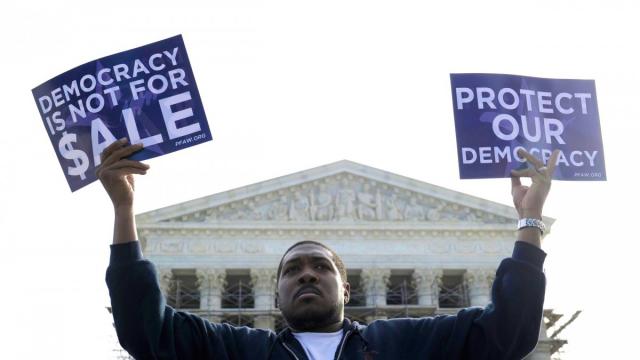
The Atlantic called millennials the “unluckiest generation,” and there’s no denying today’s young adults had the misfortune of graduating into a recession. Slate calculated that stagnant incomes and mounting student loans are putting young people “deep in a hole.” If you include those who have given up searching, the unemployment rate for 18-29 year-olds reached 15 percent last September. And a Demos poll found alarming rates of young Americans louis vuitton card holders who say their financial situations have caused them to delay major life steps like purchasing a home (46 percent), moving out on their own (33 percent), starting a family (30 percent) or getting married (25 percent).
But there’s more to the story than the economy and bad timing. Congress could take specific action to relieve some of the burdens off young Americans, but it won’t happen as long as lawmakers continue to prioritize the interests of rich corporations and the super-wealthy. Here are four ways the oversized role of money in politics is hurting millennials:
1. Student Loan Debt
More than 70 percent of the class of 2014 graduated with outstanding loans, owing a record average of $33,000 each. That brought total student debt to $1.1 trillion, surpassing the total debt from auto loans andlv shop online uk credit cards. It’s no surprise that in a poll conducted last year, 79 percent of millennials said the government should be more involved in making college affordable.
In the wake of what is obviously a crisis for young Americans, Congress has repeatedly introduced reform legislation, such as the Private Student Loan Bankruptcy Fairness Act, the Fairness for Struggling Students Act, and Sen. Elizabeth Warren’s 2013 Bank on Students Loan Fairness Act, which would have lowered interest on federal student loans (currently 4.66 percent) to the same 0.75 percent enjoyed by banks.
Why hasn’t Congress passed any of these bills and thrown a lifeline towww.newroc.co.uk struggling college grads? Perhaps it has something to do with the $4.5 million the student loan industry poured into lobbying efforts last year, or the $1 million it made in political contributions. Sallie Mae alone has spent about $3 million every year since 2007 lobbying against bills that would ease the burden on college grads.
When college lenders blocked a seemingly sure-to-pass 2010 overhaul of the student loan industry — in what The New York Times called an “aggressive” lobbying campaign — Secretary of Education Arne Duncan was unsurprised by their efforts, commenting, “They’ve had this phenomenal deal that taxpayers have subsidized, and that’s a hard thing to give up.”
2. Climate Change
While climate change affects everyone, young people with more years left on earth obviously have the most to lose. In one poll, 69 percent of millennials said the government should be more involved in preventing climate change. And they’re more concerned than their older counterparts: 70 percent Americans aged 18-29 report worrying “a great deal” or “a fair amount” about global warming.
But their levels of concern are overshadowed by another set of numbers: The oil and gas industry gave more than $61.5 million in political contributions in 2014 and spent a whopping $141.4 million on lobbying during the last election cycle. Koch Industries alone (just one facet of the sprawling Koch empire) spent $23.3 million in donations and lobbying last year. This may partially explain how we wound up with a Congress that can’t even pass an amendment acknowledging that human activity contributes to climate change.
3. Workplace Protections for Women
With women getting closer to 50 percent of the workforce than ever before (and making up 54 percent of young professional workers) workplace equity is a key issue to millennials. The Center for American Progress calculates the average woman loses $430,000 over the course of her lifetime, thanks to the 23 cent gender pay gap. Last year, three-quarters of surveyed millennial women said more changes are needed to achieve workplace equity, and 93 percent of Americans believe women should be guaranteed equal pay.
Despite overwhelming public support, since 2013, Congress has voted down the Paycheck Fairness Act four times. In September 2014, 24 organizations — including the National Restaurant Association and the US Chamber of Commerce — urged Congress to vote down the bill. At that point in the election cycle, those 24 groups had already contributed $6,000,000 to candidates and parties and spent $185,000,000 on lobbying efforts.
Corporations have prevented similar laws from succeeding at the state level, too. In 2013, then Governor Rick Perry of Texas vetoed a bill that would have made it easier for women to sue employers for wage discrimination — just two weeks after he was asked to do so in a letter from Macy’s, Kroger Food Stores and several other retailers and their trade associations.
4. Gun Control
More than half (54 percent) of the people murdered with guns in 2010 were under the age of 30. The Center for American Progress estimates that over the next several years, guns will surpass automobile accidents as the number one cause of death for people under 26. In the same report, 60 percent of people under 30 expressed concern that they will be personally affected by gun violence. For young African Americans, Latinos and Asian Americans, that concern jumped to 73 percent.
So it makes sense that 83 percent of millennials say they favor background checks for all gun purchasers, including at gun shows. And it’s not just millennials who feel this way either: in 2013, 81 percent of polled Americans told Pew Research they favor background checks at gun shows — the same year the US Senate defeated a background check bill.
Once again, this classic display of how little congressional decisions reflect public interest is unsurprising when you consider that last year alone, the gun lobby, led by the National Rifle Association, donated $3.7 million to politicians and parties and poured more than $12 million into lobbying.
3 WAYS TO SHOW YOUR SUPPORT
- Log in to post comments
















